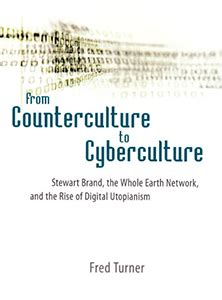@katjab has published a very interesting long read on how SARS-COV-2 is affecting the evolution of the Internet. Hers is a nuanced reflection, to which I cannot fully do justice here. Nevertheless, I would like to comment on one of her points: that the pandemic, as it ravaged so many human lives and endeavors, has strengthened large tech companies.
The obvious big winner of the COVID-19 crisis so far has been Big Tech. Where most sectors of the economy have seen demand collapse, many large tech companies are reporting record profits, and have been able to use this momentum to further consolidate market share. With more of us reliant on technology for our daily lives than ever before, we have become more willing to turn a blind eye to the excesses and ethical shortcomings of these companies and their business models. The so-called “end of the techlash” would no doubt be seen as a welcome break after years of negative headlines and mounting public pressure. But will it turn out to be a temporary respite for the internet giants, or are we witnessing a more permanent concentration of power over yet more aspects of our society and economy?
Katja formulates it as a question, but her article seems to have an answer: the Internet giants appear more unshakeable than ever. One piece of evidence stayed with me:
Jeff Bezos has so far added 25 billion to his net-worth this year, while 60 percent of UK independent bookstores expect they might not survive this crisis.
Her argument so far is very persuasive, almost inevitable. But I do not completely agree with what comes next:
It is not just their sizable battle chests that leaves Big Tech so well positioned in this current crisis. Because credit where credit is due: the privileged new class of remote workers can only be sustained because we have access to solid, well-functioning digital tools courtesy of the data barons of the new Gilded Age.
This is just not true. Remote office work could be done (and was done, by a lot of people) in the 1990s. With Mediawiki to replace version control with an edit history (developed 2002) + any chat (which hark back to IRC, developed 1988) you could do 95% of what people do today with MS Teams and the like, give or take bells and whistles. You could even argue that many bells and whistles reduce productivity: the rise of Zoom and the like make meetings easier to have online, and meetings tend to be a drag on the productivity of many people. Don’t take my word for it, ask Scott Adams.
The lionization of tech companies strikes me as deeply unfair. The most unfair is probably Netflix’s. In 1999, Shawn Fanning built Napster as a robust, scalable file sharing service. At that point we could exchange and share multimedia files. Industry sent in copyright lawyers and lobbyists and took it down, and then built it again, sold it to us, and are now using the proceedings to crush independent cultural and media enterprises. In her book The Entrepreneurial State. Mariana Mazzucato makes the point that most groundbreaking tech innovation has been made by public sector researcher and funded by taxpayers, with Big tech (and its financial sector-alter ego, venture capital) stepping in when the high-risk work was done, to privatize the reward. That’s rent seeking.
A world with great digital tools that are not owned and wielded by Big Tech is absolutely within reach. In fact, Katja herself mentions city halls in Europe deploying Jitsi servers so that schools can host online lessons. Further on, she discusses resilience: and this would be a major piece of resilience – the equivalent of 19th century municipalist socialism, when cities built their own utility companies (from transport to energy) to escape the yoke of private monopolies. I am looking forward to seeing whether any polity embraces it.
